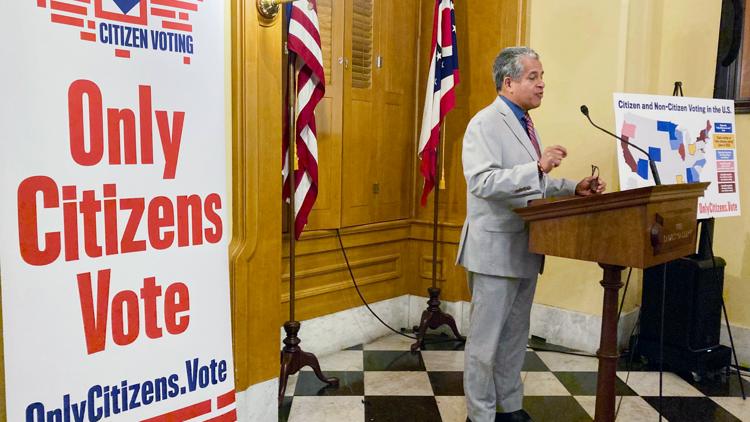The Controversy Surrounding Noncitizen Voting

In the lead-up to the upcoming election for president and other top offices in the United States, the issue of noncitizen voting has become a hot topic. While the law is clear that only U.S. citizens are eligible to vote, concerns have been raised about the potential for noncitizens to register or vote.
Republican Concerns
Republicans, citing an influx of immigrants at the U.S.-Mexico border, have raised alarms about the possibility of noncitizens participating in the electoral process. In response, they have taken steps in various states to address this concern, including voter roll reviews, executive orders, and constitutional amendments aimed at preventing noncitizen voting.
However, some Democrats argue that these measures may create obstacles for legal voters and are unnecessary, as cases of noncitizens actually voting are rare. They believe that the focus on noncitizen voting may be blown out of proportion, leading people to believe it is a bigger problem than it really is.
Legal Framework
Under a 1996 U.S. law, it is illegal for noncitizens to vote in elections for president or members of Congress. Violators can face fines, imprisonment, and deportation. When individuals register to vote, they must confirm their U.S. citizenship under penalty of perjury. States are also required by federal law to regularly maintain voter rolls and remove ineligible voters, which could include immigrants living in the country illegally.
While no state constitutions explicitly allow noncitizens to vote, some municipalities in California, Maryland, and Vermont, as well as the District of Columbia, permit noncitizens to vote in local elections such as for school boards and city councils.
Data and Court Cases
Despite the rarity of voting by noncitizens, Republican officials have highlighted voter registration reviews that uncovered potential noncitizens on voter rolls. In states like Texas, Ohio, Alabama, and Georgia, efforts have been made to identify and remove potential noncitizen voters from registration lists.
Arizona serves as a case study for Republican attempts to prevent noncitizen voting, with the state creating two voter classes for federal and state/local elections in the wake of a Supreme Court ruling. In other states, constitutional amendments are being proposed to clarify that only citizens can vote.
Actions by States and Congress
Several states, led by Republican officials, have taken additional actions to address the issue of noncitizen voting. These include executive orders requiring disclaimers on voter registration forms, posting warnings at polling places, and setting up reporting mechanisms for suspected violations of election laws.
In Congress, Republicans have introduced the Safeguard American Voter Eligibility Act, which would require proof of citizenship to register to vote. While this bill passed the House, it has not been voted on in the Senate. The Biden administration opposes the bill, arguing that existing laws against noncitizen voting are effective and that the proposed legislation could hinder eligible Americans from voting.
It remains a contentious issue with strong opinions on both sides, highlighting the complexities and challenges surrounding the issue of noncitizen voting in American elections.




